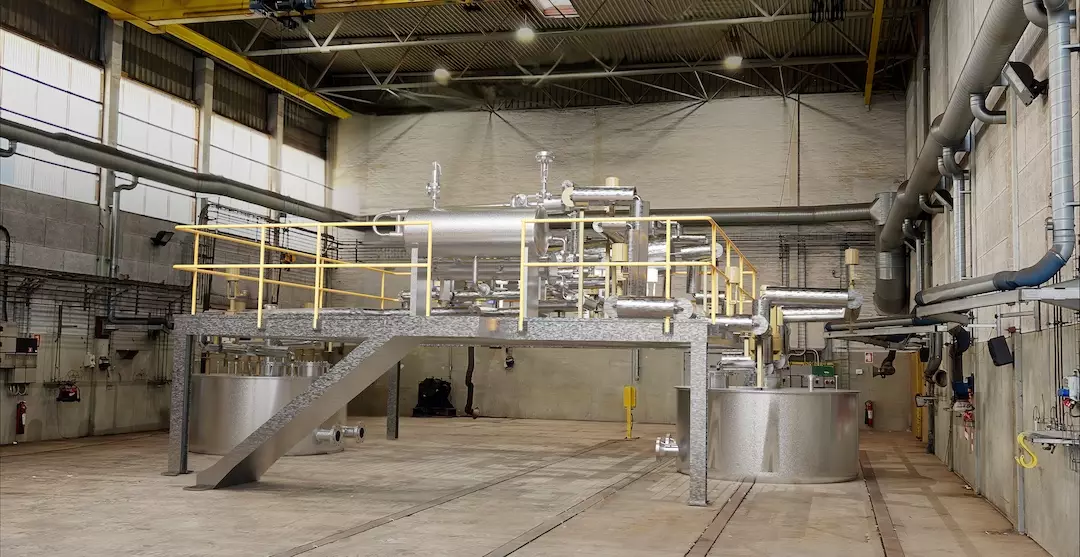The escalating costs and limitations of lithium batteries are steering industries toward alternative solutions for energy storage. As companies seek to optimize their energy efficiency and reduce carbon footprints, thermal batteries are emerging as viable contenders for large-scale applications. Notably, innovations such as Denmark’s Hyme Energy, which specializes in molten salt thermal batteries, exemplify how this technology can be an effective game-changer across various sectors.
Challenges with Lithium Batteries
Lithium batteries, while popular for their high energy density, present significant challenges when implemented at an industrial scale. These challenges include their increasing price, substantial space requirements, and sometimes unnecessary complexity for specific applications. Consequently, industries that require sustained and efficient energy solutions are exploring alternative technologies to meet their energy demands. The limitations of lithium technologies are prompting a shift toward systems that optimize cost and efficiency without compromising environmental goals.
The Advantages of Thermal Batteries
Thermal batteries, particularly those utilizing molten salts, offer unique advantages over conventional battery systems. They store energy in the form of heat, which can be preserved for extended periods. This characteristic not only reduces investment costs but also enhances operational suitability across diverse industrial applications. Hyme Energy’s recent collaboration with Arla, a leading dairy company, reflects the growing recognition of thermal storage capabilities, particularly for energy-intensive industries.
In this partnership, Hyme Energy plans to develop a large-scale thermal storage system tailored for Arla’s facility in Holstebro, Denmark. The proposed system aims to convert renewable electricity into heat stored in molten salt tanks maintained at temperatures exceeding 500°C. This initiative stands as a significant step towards decarbonizing Arla’s dairy production processes, aiming for a complete elimination of fossil fuel reliance and a targeted 100% reduction in CO2 emissions.
Technological Implementation in Industry
The core of Hyme’s advantage lies in its focus on industries necessitating continuous steam production within the temperature range of 200°C to 500°C. This requirement aligns perfectly with the operational needs of numerous sectors, which rely on consistent heat supply for their processes. Furthermore, the molten salt technology represents a novel approach to meeting the prolonged discharge demands effectively, allowing businesses to operate sustainably while adopting cutting-edge technology.
Ask Emil Løvschall-Jensen, Hyme’s co-founder and CEO, addresses the velocity at which this technology could scale across Europe to meet burgeoning industrial demands. Løvschall-Jensen maintains optimism about the scalability of thermal batteries, emphasizing that their manufacturing strategy involves partnerships with blue-chip suppliers and engineering, procurement, and construction (EPC) partners. This strategy is designed to expedite the scaling process and broaden the application of thermal energy solutions across various sectors.
Despite the promise of thermal battery technology, funding remains a double-edged sword. As Løvschall-Jensen pointed out, while there are burgeoning opportunities, attracting venture capital is still more challenging relative to software initiatives. However, the landscape is evolving, and there are signs that investors are beginning to recognize the lucrative potential of energy storage technologies early in their development cycles.
Hyme Energy has successfully garnered substantial financial backing, securing €10.4 million in its first fundraising round and an additional €8.4 million in convertible notes. Combined with grants, their total funding has reached €25 million, with plans for a further Series A funding round to raise between €20 million and €30 million. This strong funding backdrop reflects growing confidence among investors in the thermal battery sector, which has seen an influx of over $170 million in venture capital investments in 2023 alone.
As thermal battery technologies gain traction, several companies are competing in this innovative space. For instance, Electrified Thermal Solutions is developing novel brick technologies that capture and store heat for prolonged periods, while Fourth Power is working with high-temperature graphite blocks capable of storing energy at about 2,400°C. Other players like MGA Thermal are focusing on compact thermal energy storage solutions aimed at facilitating renewable energy transitions for utility companies.
The emergence of these competitors signifies intense innovation and the need for advanced energy storage solutions in the face of climate change and increasing energy demands. As industries pivot towards sustainable practices, thermal batteries represent a forward-thinking solution capable of reshaping energy consumption patterns and promoting a greener future. The collaboration between Hyme Energy and Arla could act as a catalyst for similar partnerships, signaling a transformative shift in how industries approach energy management.

